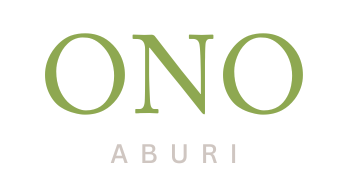Let’s talk about something many of us skip: property insurance in Ghana. You might be a homeowner or have just completed a build, but you’re thinking policies are too expensive or unnecessary. Yet, in a country where fires, floods, and theft often happen, home insurance isn’t just ‘nice to have.’ It’s a smart move to protect your home and your finances.
We’ll walk through what it covers, how much it costs, who really needs it, and how to decide what’s right for your home.
What is Property Insurance Anyway?
Think of property insurance in Ghana as a safety net for your home. It covers damage or losses from events such as fire, theft, floods, and even storm damage. Several banks serve as providers and offer some form of home insurance, each with its own twist.
For example, some banks offer comprehensive cover for your house and contents, even liability if someone gets injured at your place. And it may cost as low as GHS 25 a month for a GHS 150,000 property.
Other banks also offer cover for things like floods, storms, theft, and even temporary living costs if the place is uninhabitable. A few other providers also add specifics like injuries to household members, liability, or temporary housing. And yes, renters can even get household contents cover for their items, like a phone, furniture, or appliances.
Why Get Insurance for Your Property?
Life can happen: a fire breaks out at evening prayer, or a flood sweeps through during the rainy season. Repairs can cost your entire savings. Or let’s say, a visitor trips on your steps. What if they end up needing expensive medical care?
With home insurance, your losses are not yours to bear alone. The cover can range from building repairs and replacement of your things to liability for accidents, and even hotel bills while your place is rebuilt.
Who Needs Property Insurance?

Everyone, essentially. But is property insurance mandatory in Ghana? Not really: for private homes, it’s optional. However, for commercial or public buildings, the law does require it under the Insurance Act, 2021 (Act 1061). Still, even if it’s not required, many banks ask homeowners for proof of insurance before approving a mortgage.
Also, insurance use in Ghana is very low (under 2% of people), according to expert reports. That means most homes go unprotected. If something happens, you might face a big empty pocket.
How Much Does Insurance Protection Cost?
Different banks and Insurance companies have differing insurance packages. You might get a financial institution charging a GHS 25/month premium for a house worth GHS 150,000, as earlier stated.
Whereas commercial property premiums are generally only 0.185% to 0.3% annually. So, if your property is worth GHS 100,000, you might pay about GHS 300 a year; that’s about GHS 25 a month.
High-value homes may cost just a few hundred cedis in insurance premiums.
What Does a Policy Usually Cover?
Insurance isn’t one-size-fits-all, but many policies cover building damage, including common things like fire, flood, storms, theft, vandalism; personal contents like furniture, electronics, and jewellery (sometimes up to a limit per item).
There’s also liability cover for the incident where someone gets hurt on your property. And then cover for alternative housing costs; that is, if you can’t stay at home after a disaster.
Some policies may leave out things like earthquakes or terrorism, but be sure to check what’s included or not.
Are there Drawbacks?
Yes. Let’s be honest. A common thing with insurance in Ghana is the issue of trust. Most people worry that the insurer will delay or deny claims. That’s a real concern. Brokers often step in to keep the process smooth.
Then again, a huge awareness gap exists when it comes to insurance. Many Ghanaians (especially those in the informal sector) don’t know how insurance works or why it’s helpful. But simple understanding and advice can change that.
Even so, the cost of not having cover (if damage strikes) is a gamble with your biggest asset.
How to Choose the Right Insurance Cover for You

The first is to estimate your home’s value, not just market price, but what it would cost to rebuild. Then, do a risk check: is your house flood-prone, in a high-crime area, or made with flammable materials? Compare policies; look at what’s covered, how much, and for what price.
Ask about claims. How fast do they pay out? Till what limit? Also, check trustworthiness. You’ll do well to go with well-known insurers or those with good reviews.
Conclusion
So, do you really need property insurance in Ghana? If you own a home, the answer is yes, especially if you care about your peace of mind, the people in your home, and protecting your investment.
It’s not always required (depending on property type), but for the price of a few cups of coffee, you get protection against serious loss.
Real estate insurance cover in Ghana isn’t just for the wealthy. It’s for every homeowner who wants to sleep peacefully at night, knowing they’re covered.
